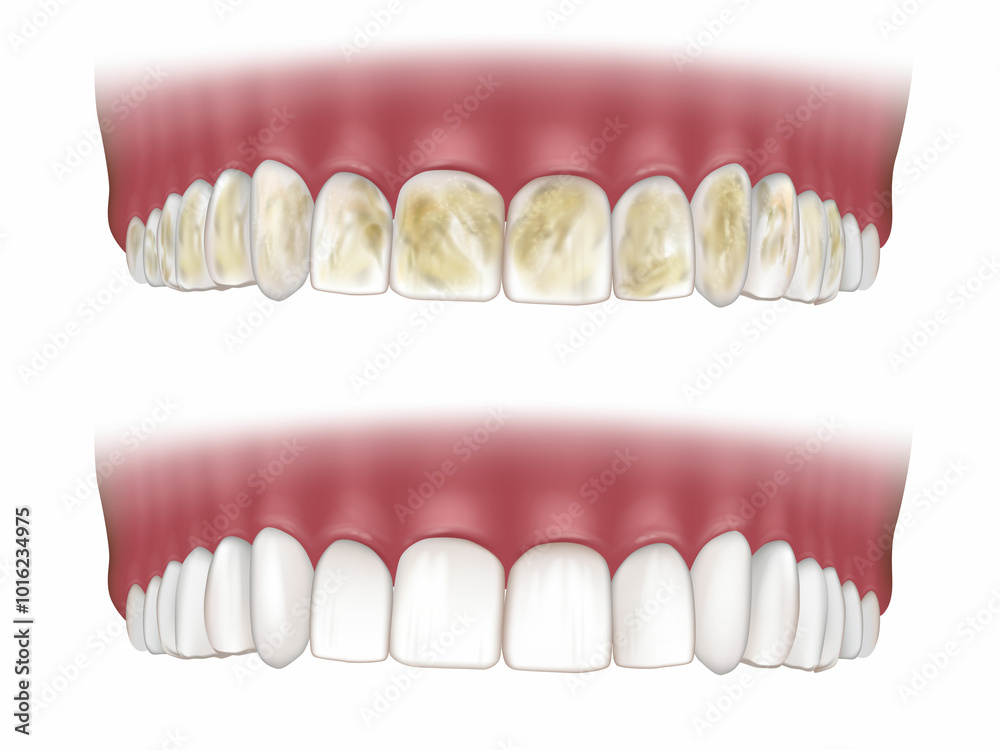Debridement Teeth Cleaning

Debridement teeth cleaning is a dental procedure that involves the removal of plaque, tartar, and other debris from the teeth, both above and below the gum line. This procedure is typically performed on patients who have not had a professional dental cleaning in a long time, or those who have a significant buildup of tartar and plaque on their teeth. The goal of debridement teeth cleaning is to remove the debris that can cause inflammation and infection in the gums, and to help prevent further damage to the teeth and surrounding tissues.
The procedure typically begins with a thorough examination of the mouth, including the teeth, gums, and surrounding tissues. The dentist will use a combination of visual examination and radiographs (x-rays) to identify areas of tartar and plaque buildup, as well as any other potential problems. Once the examination is complete, the dentist will use a variety of tools, including ultrasonic scalers and hand instruments, to remove the tartar and plaque from the teeth.
One of the key benefits of debridement teeth cleaning is that it can help to reduce inflammation and prevent infection in the gums. When tartar and plaque are allowed to build up on the teeth, they can cause the gums to become inflamed and irritated, leading to a condition known as gingivitis. If left untreated, gingivitis can progress to a more serious condition called periodontitis, which can cause damage to the teeth and surrounding tissues. By removing the tartar and plaque, debridement teeth cleaning can help to prevent these conditions and promote overall oral health.
In addition to its benefits for oral health, debridement teeth cleaning can also have a significant impact on overall health. Research has shown that there is a link between gum disease and a range of other health conditions, including heart disease, diabetes, and respiratory infections. By keeping the teeth and gums healthy, debridement teeth cleaning can help to reduce the risk of these conditions and promote overall well-being.
The cost of debridement teeth cleaning can vary depending on a range of factors, including the location, the experience of the dentist, and the extent of the procedure. On average, the cost of a debridement teeth cleaning can range from 100 to 500 or more, depending on the specific needs of the patient. It’s worth noting that many dental insurance plans cover at least a portion of the cost of debridement teeth cleaning, so it’s a good idea to check with your insurance provider to see what’s covered.
In terms of potential risks and complications, debridement teeth cleaning is generally considered a safe procedure. However, as with any medical procedure, there are some potential risks to be aware of. These can include:
- Discomfort or pain: Some patients may experience discomfort or pain during or after the procedure, although this can typically be managed with local anesthetics or pain medication.
- Bleeding or infection: There is a small risk of bleeding or infection after the procedure, although this can typically be managed with antibiotics or other treatments.
- Damage to teeth or gums: In some cases, the procedure can cause damage to the teeth or gums, although this is rare and can typically be managed with additional treatments.
To maintain good oral health after a debridement teeth cleaning, patients can follow these tips:
- Brush and floss regularly: Be sure to brush and floss your teeth at least twice a day to help remove plaque and tartar.
- Use an antibacterial mouthwash: Using an antibacterial mouthwash can help to kill bacteria and promote healing.
- Avoid sugary or acidic foods: Sugary or acidic foods can contribute to tooth decay and other oral health problems, so it’s a good idea to avoid them as much as possible.
- Schedule follow-up appointments: Be sure to schedule follow-up appointments with your dentist to monitor your progress and address any potential issues.
What is the difference between debridement teeth cleaning and a regular teeth cleaning?
+Debridement teeth cleaning is a more extensive procedure than a regular teeth cleaning, and is typically performed on patients who have a significant buildup of tartar and plaque on their teeth. While a regular teeth cleaning focuses on removing plaque and tartar from the surfaces of the teeth, debridement teeth cleaning involves removing debris from both above and below the gum line.
How long does a debridement teeth cleaning take?
+The length of a debridement teeth cleaning can vary depending on the extent of the procedure and the individual patient's needs. On average, the procedure can take anywhere from 30 minutes to several hours, although it's typically performed in a single visit.
Is debridement teeth cleaning painful?
+While some patients may experience discomfort or pain during or after the procedure, debridement teeth cleaning is generally considered a safe and relatively painless procedure. Your dentist can use local anesthetics or pain medication to help manage any discomfort, and can also provide guidance on how to manage any pain or discomfort after the procedure.
In conclusion, debridement teeth cleaning is an important dental procedure that can help to promote oral health and prevent a range of other health conditions. By removing tartar and plaque from the teeth, both above and below the gum line, debridement teeth cleaning can help to reduce inflammation and prevent infection in the gums. While the procedure may involve some discomfort or risk of complications, it is generally considered safe and effective, and can be a valuable tool in maintaining good oral health.


